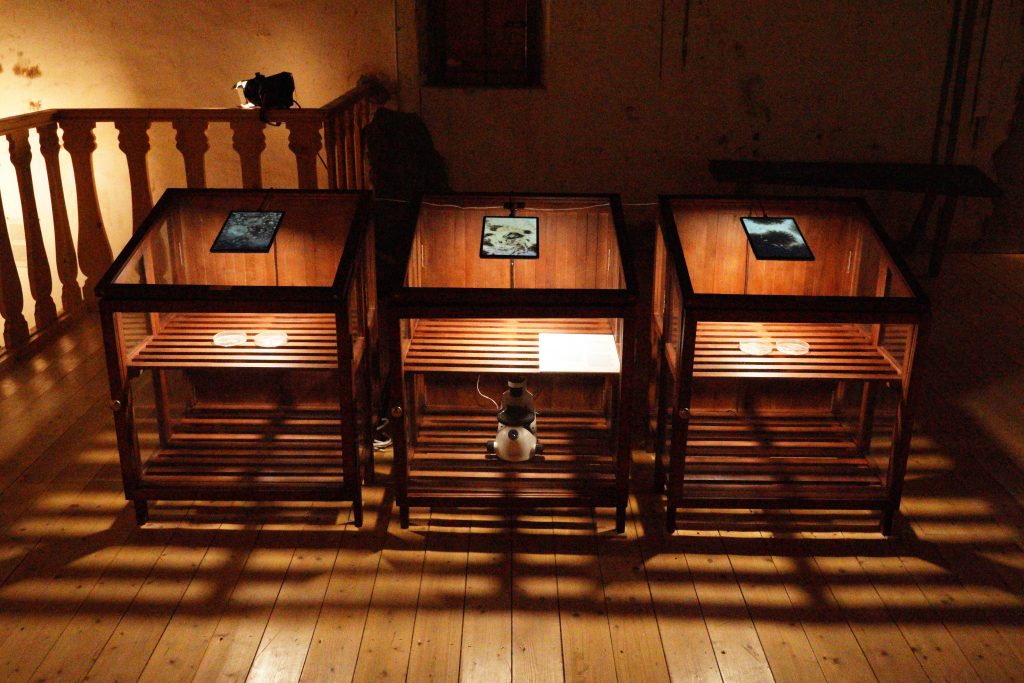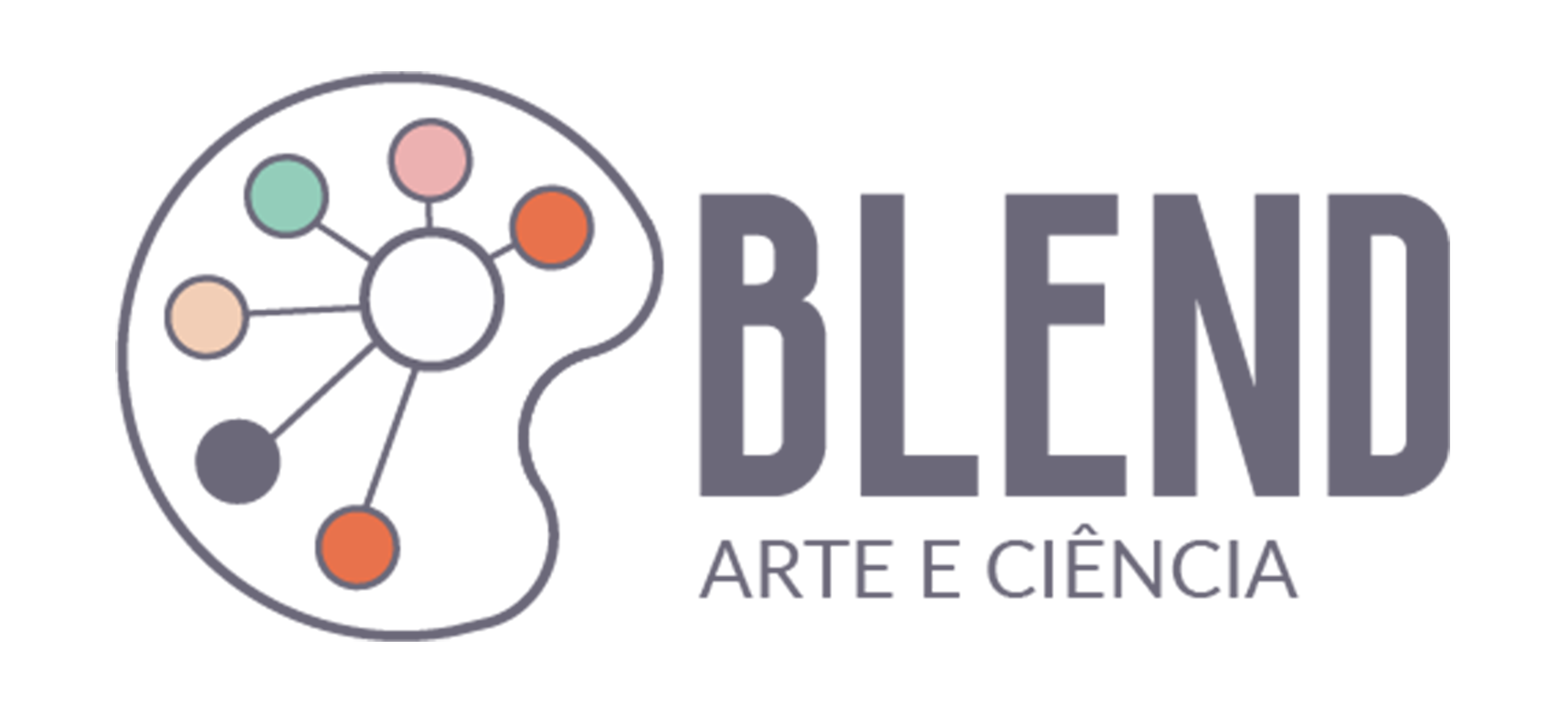A divina psique
Sally Santiago

PT//
Como modelos estruturados não apenas pela relação com o mundo real, mas também pela capacidade do indivíduo de modelar e simular processos mundiais em sua mente, de uma forma única e particular, os mental models evidenciam e permitem a personalização dos processos de pensamento de cada indivíduo. Tal como cada pessoa tem uma forma única de articular as suas ideias e pensamentos, ‘A divina psique’ traz a suposição de sua própria mente, de seus próprios processos de raciocínio ali ativos e constantes, com um caráter íntimo e imprevisível, que beira o desconhecido até mesmo ao próprio ser pensante.
É neste representar de um “misterioso movimento cognitivo” que imagens de microscópio retiradas de amostras de água e barro de uma lagoa localizada no Brasil são trazidas para a instalação de vídeo estabelecendo uma associação entre dois espaços desconhecidos. Ao entender a água e o barro como elementos em constante “movimento”, pelo desenvolvimento de organismos vivos, este ecossistema é trazido como imagem para o vídeo a fim de associá-lo à mente, onde acontecem as articulações e conexões do pensamento, evidenciando os respectivos “movimentos” destes dois espaços – evolução cognitiva e de ecossistema.
EN//
As structured models are shaped not only by their relationship with the real world but also by an individual’s capacity to model and simulate global processes in their mind, mental models reveal and allow for the customization of each individual’s thought processes. Just as each person has a unique way of articulating their ideas and thoughts, ‘The divine psyche’ brings forth the assumption of its own mind, its own active and constant processes of reasoning, with an intimate and unpredictable character that borders on the unknown, even to the thinking self.
It is in this portrayal of a “mysterious cognitive movement” that microscope images taken from water and mud samples of a pond located in Brazil are brought into the video installation, establishing an association between two unfamiliar spaces. By understanding water and mud as elements in constant “motion” through the development of living organisms, this ecosystem is depicted in the video to be linked to the mind, where the articulations and connections of thought take place, highlighting the respective “movements” of these two spaces – cognitive evolution and ecosystem.


BIO
PT//
Sally Santiago é uma artista e pesquisadora brasileira que vive em Porto/Portugal, onde desenvolve sua investigação de Doutoramento em Artes Plásticas. Utilizando o vídeo, a instalação e a fotografia em busca de elevar movimentos da existência à uma superfície consciente, apresenta reflexões profundas sobre a natureza da vida e da própria arte. Ao dialogar sobre o corpo e o espaço – seu relacionar e habitar – suas experimentações caminham entre a arte e a filosofia, um estrelaçar que aponta para reflexos imateriais entre a existência humana e sua conexão com o mundo ao redor. Faz parte do programa de doutoramento em Artes Plásticas da FBAUP, possui mestrado em criação artística contemporânea (UA/PT) e bacharel em comunicação social (UAM/ BR). Desde 2021 faz parte da equipa das instituições culturais Cultivamos Cultura e Ectopia Laboratório de Arte Experimental. Tendo antes disso, em 2020, colaborado com o Centre of Contemporary Art em Christchurch (NZ).
EN//
Sally Santiago is a Brazilian artist and researcher living in Porto/Portugal, where she is developing her PhD research in Fine Arts. Using video, installation, and photography to elevate the movements of existence to a conscious surface, the artist presents profound reflections on the nature of life and art itself. By engaging in dialogues about the body and space – their relationship and inhabitation – their experiments traverse the realms of art and philosophy, intertwining to reveal immaterial reflections between human existence and its connection with the world around. She is part of the PhD program in Fine Arts at FBAUP, holds a master’s degree in contemporary artistic creation (UA/PT) and a bachelor’s degree in social communication (UAM/ BR). Since 2021 she is part of the team of the cultural institutions Cultivamos Cultura and Ectopia Laboratório de Arte Experimental. Before that, in 2020, she collaborated with the Centre of Contemporary Art in Christchurch (NZ).

